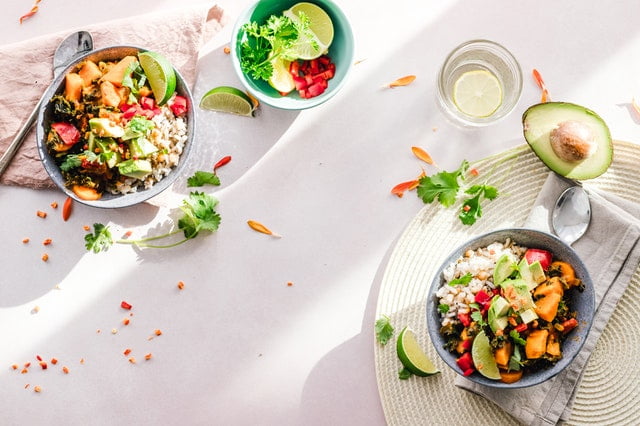Organic Food For Babies: Is It Healthier?
- Published on:
- Last update: 09 October 2023

Organic Food For Babies
If you’re a new parent, your baby may have been fed breast milk or formula for a while. In any case, your baby seems to be showing concern about what’s on your plate now. Try to introduce organic food for babies at the right time. When you determine that your baby is developmentally ready for solid food she can sit without support, doesn’t automatically force food out of her mouth, can chew, and is interested in food. How do you go about starting? You begin by eating food that is easier to swallow since junior has fewer teeth than you do.
Organic food for babies can be found in an overwhelming amount of varieties at the grocery store. Where should you start? With cereal or vegetables? Does organic food, conventional food, or homemade baby food are better for your baby?
When it comes to feeding your baby, what type of food should you choose first?
As a dietitian, I encourage babies to start with vegetables and then add fruits, so they learn to like vegetables since fruits taste sweeter. Cereal is thought to be the gold standard for introducing solids, but there’s no indication it’s better or worse than starting with other pureed foods. As far as cereals go, I would suggest oatmeal, since rice cereals have been reported to contain high levels of arsenic.
What is the better baby food for your baby: homemade, organic, or conventional?
There are pros and cons to all three types of food, but from a nutrition standpoint, organic options aren’t any more nutritious, and cost can be a barrier for some families.
While organic food for babies may be free from pesticide contamination, conventional baby food typically exceeds the pesticide limits.
Organic production may be more expensive to you if it is important to use environmentally friendly methods. You can choose what to feed your baby depending on your budget, lifestyle, and time constraints by knowing the pros and cons of organic, conventional, and homemade baby food.

Pros and cons of commercial baby food
Pros
- Convenient, ready to use
- After being opened, it doesn’t need to be prepared or refrigerated
- Longer shelf life
- Meet safety requirements in the preparation process
Cons
- Limited to what’s available
Are pouches or jars better?
Usually, there’s less waste and less mess when using pouches since the spoon only needs a small amount of the powder. Although they may be more expensive, they’re less likely to break or spill. There is a drawback to pouches, though: they don’t develop many motor skills like using a spoon. You can use them on the go, just be sure you don’t use them all the time.
Jars are economical but can spill or break. In addition to being good to use at home, they allow your child to learn how to use a spoon by eating food in a dish. Once you’ve put a used spoon in the food, the saliva can contaminate the food, so throw away any food that has saliva in it.
Commercial baby food that is organic: pros and cons
Advantages of organic commercial baby food
- Less expensive
- Wide variety
- Readily available
- Available through food assistance programs
- Food safety guidelines have been met
- Same advantages as conventional baby food
- Slightly less chance of pesticide contamination
Cons of organic commercial baby food
- There is a potential for pesticide exposure, but pesticide limits are rarely exceeded
- Limited to what’s available
- Usually more expensive
- There aren’t any programs that offer this everywhere or through every food assistance program
- Time commitment
- This item is not shelf-stable.
Tips for purchasing organic baby food on a budget
- You can puree or mash the food to vary the texture
- Since the baby is ready for it, you can use what the rest of the family is eating
- Fruits, vegetables, and cooked meats can be used fresh, frozen, or canned
- Those foods, such as ripe bananas, avocados, pears, etc., that can be mashed fresh without cooking may be better in terms of nutrition than canned versions.
Here are some tips for making organic food for babies at home
Because their immune systems are still developing, babies are particularly susceptible to food-borne illnesses. Here are the best tips to ensure your baby’s food is prepared safely:
Before feeding your baby or preparing the food, wash your hands.
- Cross-contamination should always be avoided, especially with raw meat.
- It is recommended that you cook meat to the recommended temperature.
- Afterward, rinse the fruits and vegetables.
- Sweetening and salting are not recommended.
- To puree, use a food processor, blender, electric grinder, or hand grinder.
- When you need to thin your food, you can use breast milk or formula.
- Fruits and vegetables can be stored in the refrigerator for up to 48 hours, and dairy products, eggs, and cooked meat for up to 24 hours. Food leftovers should be frozen in child-sized portions and thawed in a microwave when needed.
- If you’re preparing hot food, check to make sure it’s cooled enough to feed your baby.
A portion of new food should be introduced one to two days after it is first consumed. Discuss food allergies with your pediatrician if your family has a history of them.
Messes While Eating Are Learning Opportunities.
You can add texture as your baby gets older and allow them to feed themselves. The signs that your baby is full are when they move away from you or spit out food. Be careful not to feed your baby more food than they need. Follow their cues as to when to feed him or her. Ensure that a variety of foods is available when it comes to organic food for babies. The color of natural foods indicates whether it contains various vitamins. Experiencing food through the five senses helps students to understand the magic of eating. They’ll enjoy the messiness, excitement, and fun.
You should avoid feeding your baby food products until they are at least a year old
- Honey
- Home-canned foods
- Unpasteurized dairy products like raw milk and some soft cheeses.
- Cow’s milk
Contact your child’s doctor or pediatrician if you have specific questions about the way your baby is responding to food.
Share this post:

